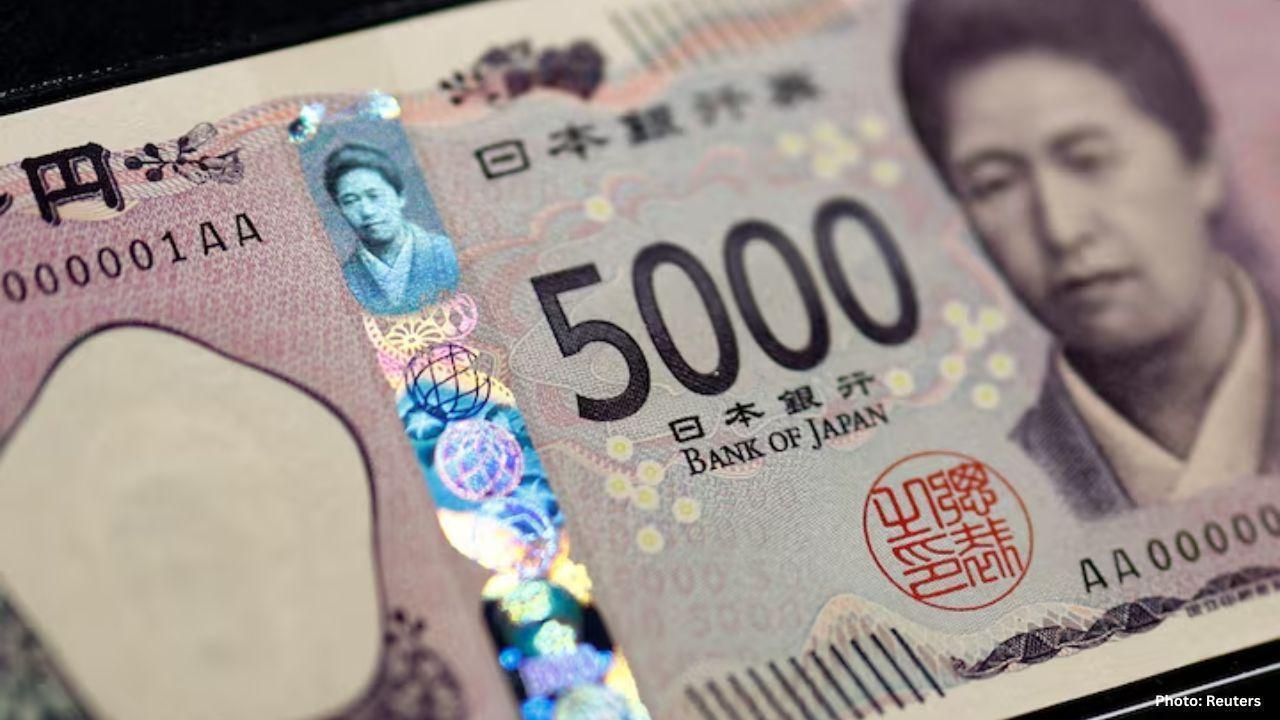
Post by : Monika
On October 7, 2025, the Japanese yen fell to its lowest level in two months against the U.S. dollar and hit a record low against the euro. This drop came right after Sanae Takaichi was elected as the new leader of Japan's ruling Liberal Democratic Party (LDP). Her win positions her to become the next prime minister of Japan. Investors around the world reacted quickly to the news, selling yen and buying other currencies.
The yen’s weakening is connected to concerns about Japan’s economic future under Takaichi’s leadership. She is known for supporting aggressive government spending to stimulate the economy, while being cautious about raising interest rates.
Many investors fear her policies could lead to higher inflation and increased public debt. These worries make foreign investors less likely to hold yen, causing its value to drop.
Why the Yen Fell
The yen has been sensitive to changes in political leadership in Japan. Before the election, markets expected that the Bank of Japan (BoJ) might raise interest rates to fight inflation. A higher interest rate usually strengthens a currency because it attracts investors looking for better returns. However, after Takaichi won the leadership, expectations of a rate hike dropped sharply.
Money market traders now estimate only a 25% chance of an interest rate increase at the BoJ's next policy meeting on October 30, down from about 60% before the election. This significant shift caused the yen to weaken against the dollar and euro.
The dollar strengthened because investors saw the United States as a more stable option. The euro also remained weak, not only due to Japan’s situation but also because of political uncertainty in France. French Prime Minister Sebastien Lecornu recently resigned, creating doubts about the French government and the eurozone’s economic stability.
Statements from Japanese Officials
Japan’s Finance Minister, Katsunobu Kato, commented on the yen’s recent decline. He stressed the importance of keeping currency movements stable and said the government is monitoring the situation closely. Kato noted that if the yen’s fall becomes too extreme or disorderly, the government could intervene to stabilize it.
Similarly, officials at the Bank of Japan have been closely watching the market reactions. The central bank has maintained a careful approach to interest rates and is aware that political changes may affect investor confidence. Analysts say that Takaichi’s leadership could influence future monetary policies, which will be important for the yen’s performance.
Impact on the Stock Market
Even though the yen weakened, Japan’s stock market reacted positively to Takaichi’s election. The Nikkei 225 index jumped over 5% to reach record highs. Investors are hopeful that Takaichi’s pro-growth policies will boost the economy and increase corporate profits.
However, not all effects are positive. The falling yen may increase the cost of imported goods in Japan, which could hurt consumers and companies that rely on foreign products. This tension between a stronger stock market and a weaker currency shows that investors are balancing optimism about growth with concerns about inflation and rising costs.
Global Reactions
The yen’s drop had ripple effects in global markets. The U.S. dollar strengthened slightly as investors moved money into a perceived safe currency. Other Asian currencies, like the Chinese yuan and the Australian dollar, also experienced fluctuations as traders adjusted their positions.
European investors were cautious because of France’s political situation. The resignation of the French Prime Minister created uncertainty in the eurozone. Investors pulled back from European assets, which weakened the euro against both the dollar and yen.
Global commodity markets also reacted to currency movements. Japan imports a large amount of energy and raw materials, which are priced in dollars. A weaker yen increases import costs, potentially affecting Japan’s inflation rates. This could create pressure on the government and the Bank of Japan to adjust policies in the near future.
Economic Context
Japan’s economy has faced challenges in recent years. Low growth, an aging population, and high government debt have been persistent issues. Interest rates in Japan have remained very low for many years, with the BoJ using unconventional measures to stimulate growth.
Takaichi’s election comes at a time when markets are especially sensitive to political changes. Investors are watching whether she will continue Japan’s current policies or make significant changes. Her approach to government spending and interest rates could determine how the yen and Japanese markets perform in the coming months.
What Investors Are Watching
Investors are focusing on several key areas. First is Takaichi’s approach to monetary policy. Will she allow the BoJ to raise interest rates to control inflation, or will she prioritize economic growth through government spending?
Second is government debt. Japan has one of the highest debt-to-GDP ratios in the world. Decisions about spending and borrowing will be closely watched because they directly affect the yen’s value.
Third is global market reactions. Changes in Japan’s currency can influence trade, investments, and commodity prices worldwide. Investors in the U.S., Europe, and Asia are all keeping a close eye on the situation.
Finally, political stability in other countries, such as France, also plays a role. Uncertainty in Europe can affect the euro and global financial markets, which in turn impacts Japan’s economy and the yen.
Safe-Haven Assets and Gold
Amid the uncertainty, some investors have turned to safe-haven assets like gold. Gold prices tend to rise when currencies are unstable or political risks increase. Analysts say this trend may continue until investors have more clarity on Japan’s policies and other global developments.
The U.S. Federal Reserve is also important. Markets are waiting for signals about U.S. interest rates, which influence global capital flows. Any changes in rates could affect how attractive the dollar is compared to the yen, further influencing currency markets.
Long-Term Implications
The election of Takaichi may have long-term effects on Japan’s economy. If she prioritizes government spending over interest rate increases, the yen may remain weaker for an extended period. This could make exports cheaper and more competitive but increase import costs, affecting inflation.
A weaker yen can also influence Japan’s international trade. Exporters may benefit from a lower currency because their goods become cheaper for foreign buyers. However, companies that rely on imports for raw materials or energy may face higher costs.
The balance between promoting growth and managing inflation will be critical. Investors and policymakers will need to watch carefully how Takaichi handles these challenges.
the Japanese yen’s decline after Sanae Takaichi’s election as the leader of the LDP reflects investor concerns about Japan’s economic direction. While stock markets reacted positively, the weaker currency shows that investors are cautious about potential inflation and debt issues.
Japan’s government and the Bank of Japan are closely monitoring the situation. The coming weeks and months will reveal how Takaichi’s policies will impact the yen, the stock market, and Japan’s economy as a whole.
Global investors will also continue to watch political events in Europe, U.S. interest rate decisions, and global market reactions. Together, these factors will shape currency values, trade flows, and economic growth.
Overall, the situation shows the complex relationship between political leadership, economic policy, and financial markets. Investors, businesses, and ordinary citizens will all be affected by how these policies unfold in the near future.










Mattel Revives Masters of the Universe Action Figures Ahead of Film Launch
Mattel is reintroducing Masters of the Universe figures in line with its upcoming film, tapping into

China Executes 11 Members of Criminal Clan Linked to Myanmar Scam
China has executed 11 criminals associated with the Ming family, known for major scams and human tra

US Issues Alarm to Iran as Military Forces Deploy in Gulf Region
With a significant military presence in the Gulf, Trump urges Iran to negotiate a nuclear deal or fa

Copper Prices Reach Unprecedented Highs Amid Geopolitical Turmoil
Copper prices soar to all-time highs as geopolitical tensions and a weakening dollar boost investor

New Zealand Secures First Win Against India, Triumph by 50 Runs
New Zealand won the 4th T20I against India by 50 runs in Vizag. Despite Dube's impressive 65, India

BTS Tour Sparks Global Demand: Mexico Appeals for Additional Shows
BTS' comeback tour creates immense demand in Mexico, prompting President Sheinbaum to urge more conc